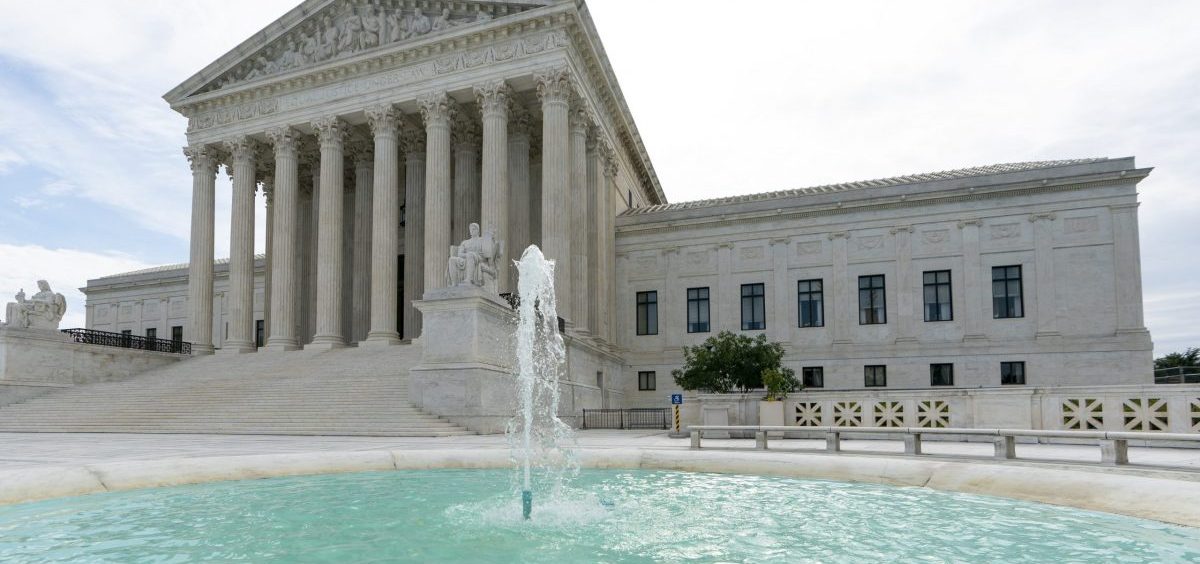News

Supreme Court Says Trump Not ‘Immune’ From Records Release, But Hedges On House Case
By: Nina Totenberg | NPR
Posted on:
Updated at 1:10 p.m.
WASHINGTON, D.C. (NPR) — In a pair of historic rulings on Thursday, the U.S. Supreme Court rejected President Trump’s claim of absolute immunity under the law. The vote was 7 to 2 in cases involving grand jury and congressional subpoenas for Trump’s pre-presidential financial records.
Chief Justice John Roberts wrote the court’s opinion, declaring, “In our system, the public has a right to every man’s evidence.”
Though the subpoenas in both cases were for similar information, the victory in the grand jury case was a clean kill for the New York District Attorney, giving his investigators and the grand jury immediate access to a broad range of documents that had been subpoenaed from Trump’s accountants and banks that have loaned his businesses billions of dollars.
In contrast, the court sent the congressional subpoena case back to the lower courts for further findings. That ensures that the public will not see any of the subpoenaed material until after the election.
Trump was apparently enraged by the outcome, tweeting a string of criticism that “this is all a political prosecution,” and “Courts in the past have given ‘broad deference.’ BUT NOT ME!”
New York District Attorney Cyrus Vance issued a statement calling the decision in the grand jury case “a tremendous victory for our nation’s system of Justice and its founding principle that no one — not even the president — is above the law.”
Trump’s personal attorney Jay Sekulow took a more optimistic tone in his response to the Supreme Court rulings on the president’s financial information.
“We are pleased that in the decisions issued today, the Supreme Court has temporarily blocked both Congress and New York prosecutors from obtaining the President’s financial records. We will now proceed to raise additional Constitutional and legal issues in the lower courts,” Sekulow said in a statement.
House Speaker Nancy Pelosi, D-Calif., called the Supreme Court ruling a reaffirmation of the authority of Congress to conduct oversight of the executive branch. She told reporters Thursday that Congress will continue to conduct that oversight by pursuing Trump’s records in the lower courts.
“The Supreme Court, including the president’s appointees, have declared that he is not above the law,” Pelosi told reporters at a weekly press conference. “It is not good news for the president of the United States.”
Pelosi said the path laid out by the ruling will require a longer process for Congress to receive information, like details of Trump’s tax returns, and Democrats plan to move forward in that pursuit.
The subpoenas in the two cases involve financial records largely from before Trump became president. The subpoenas were issued not to Trump, but directly to Deutsche Bank, Capital One and Mazars USA, the banks and accounting firm that Trump and his family did and continue to do much of their business with.
The House Financial Services, Intelligence and Government Oversight committees said the subpoenas were in the exercise of their oversight and legislative responsibilities.
The committees said they were seeking the Trump records to inform the need for new international money laundering restrictions, as well as for other purposes, such as to see whether ethics laws should be tightened to prevent a president with huge business interests from using his office to enrich himself.
The subpoenas issued by the New York grand jury involve an ongoing and broad investigation that includes, among other things, hush money allegedly paid to porn star Stormy Daniels and another woman during the 2016 presidential campaign.
No ordinary citizen would be able to block such subpoenas for business records or tax returns, but Trump took the position that the president is not like any ordinary citizen. Rather, his argument is that he is essentially immune to law enforcement while he is in office and similarly immune to congressional subpoenas.
“Deutsche Bank is sitting on a trove of records … Trump’s innermost financial secrets,” said David Enrich, business investigations editor at The New York Times and author of Dark Towers, a book about Trump and Deutsche Bank.
“It’s basically a black box,” Enrich observed. “And Deutsche Bank is one of the few institutions in the world that has the keys to unlock it.”
He said that among the documents are not only Trump’s tax returns but also “balance sheet information, income statements … who his business partners are … which he has spent years trying to keep hidden from public view.”
Trump has taken out multibillion-dollar loans from Deutsche Bank, but the relationship extends beyond that, according to Enrich. The bank also managed his assets and “provided matchmaking services that connected Trump with wealthy individuals, including some very wealthy, well-connected Russians who were looking to invest in American real estate,” Enrich says.
Mazars and Deutsche Bank did not object to complying with the subpoenas. But Trump stepped in to ask the courts to block them from doing so.
Senior political editor Domenico Montanaro and congressional correspondent Kelsey Snell contributed to this report.
9(MDI4ODU1ODA1MDE0ODA3MTMyMDY2MTJiNQ000))

